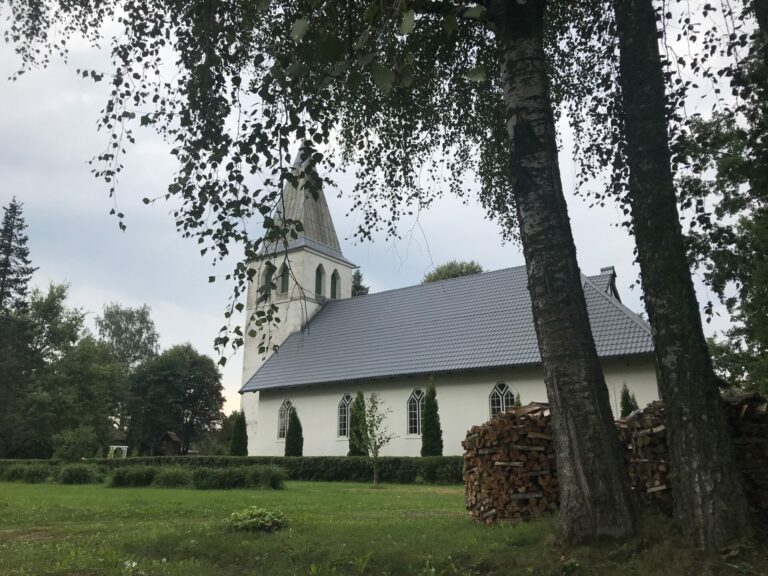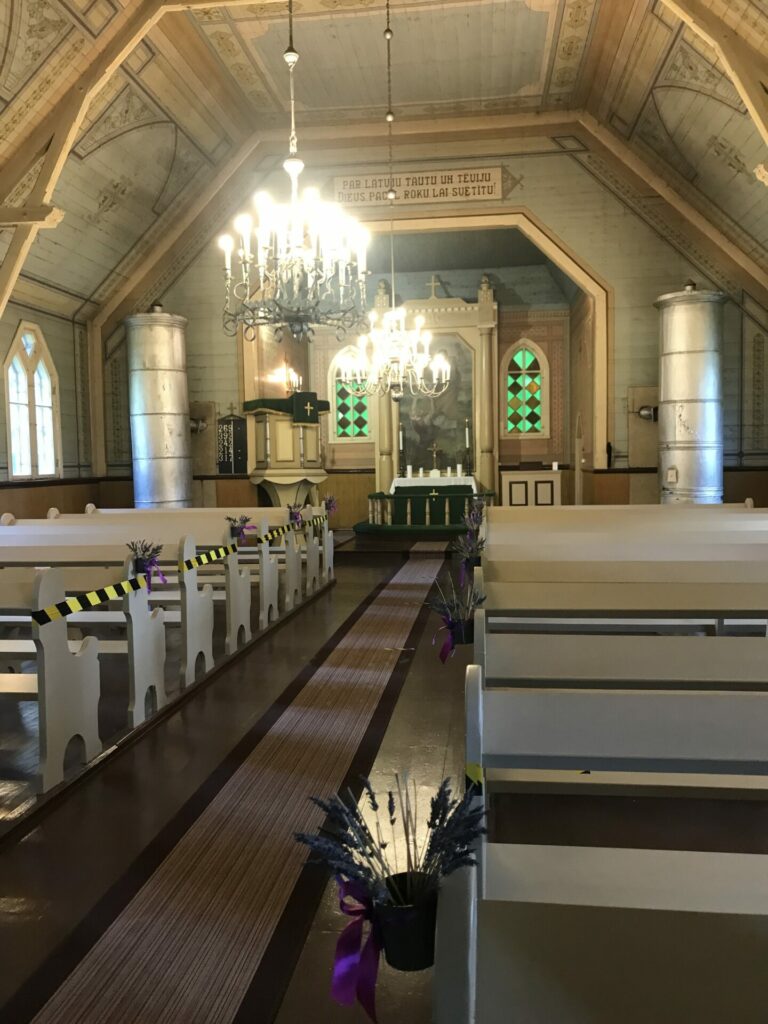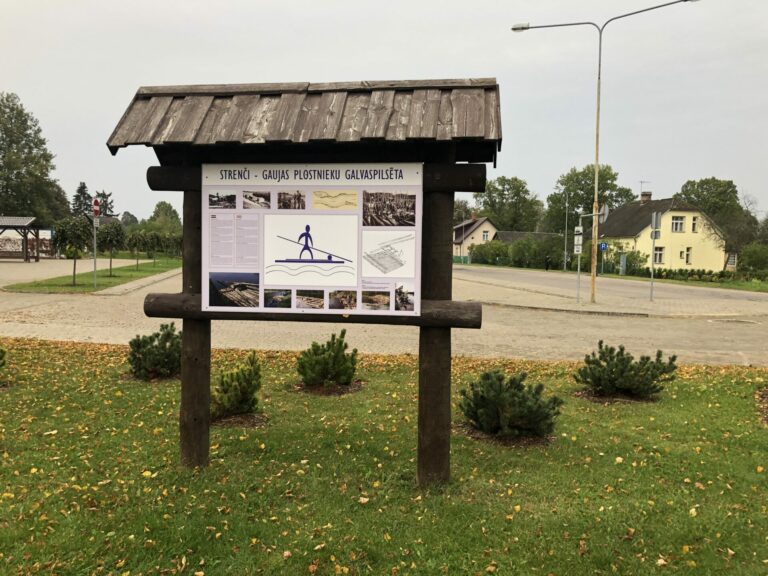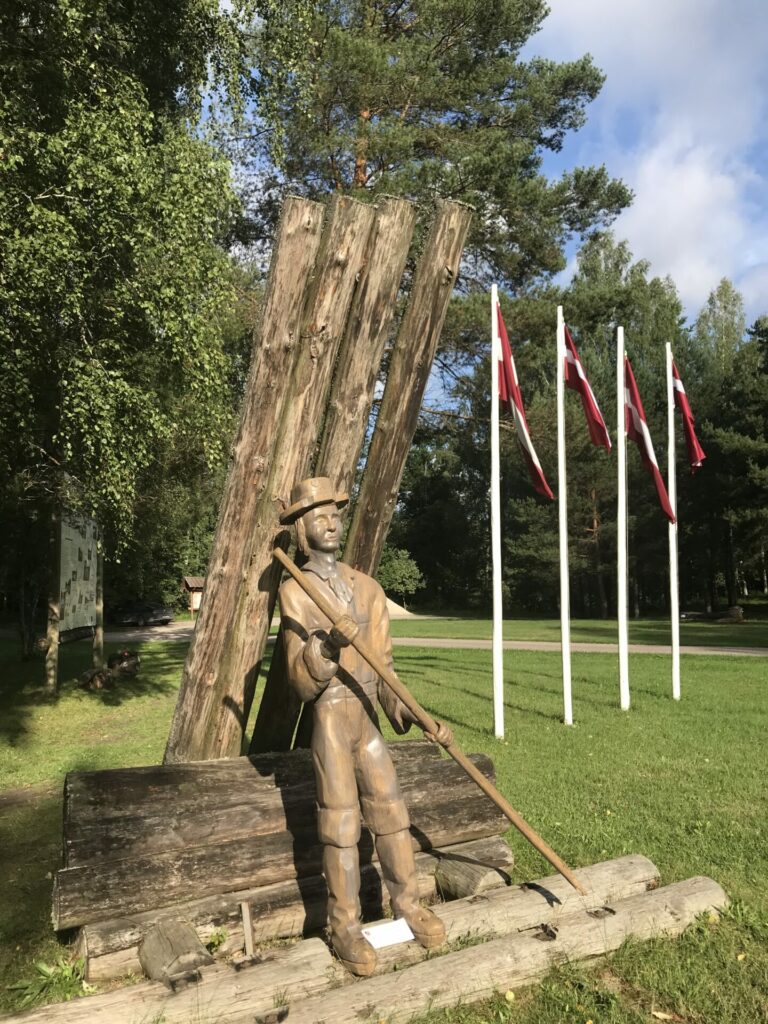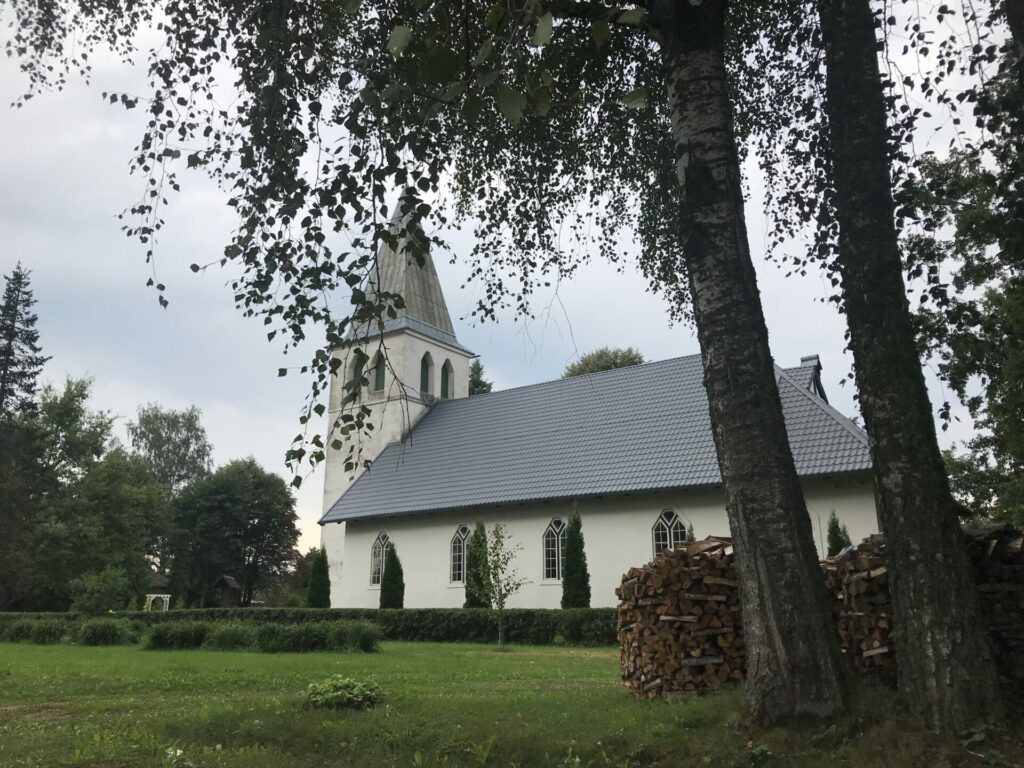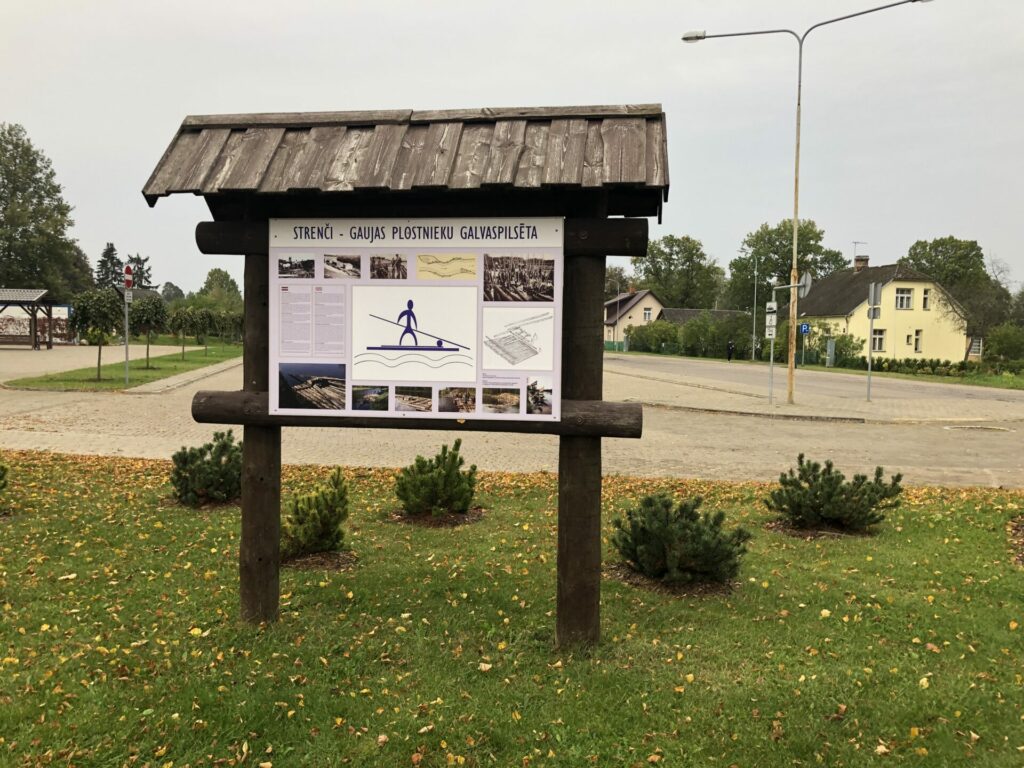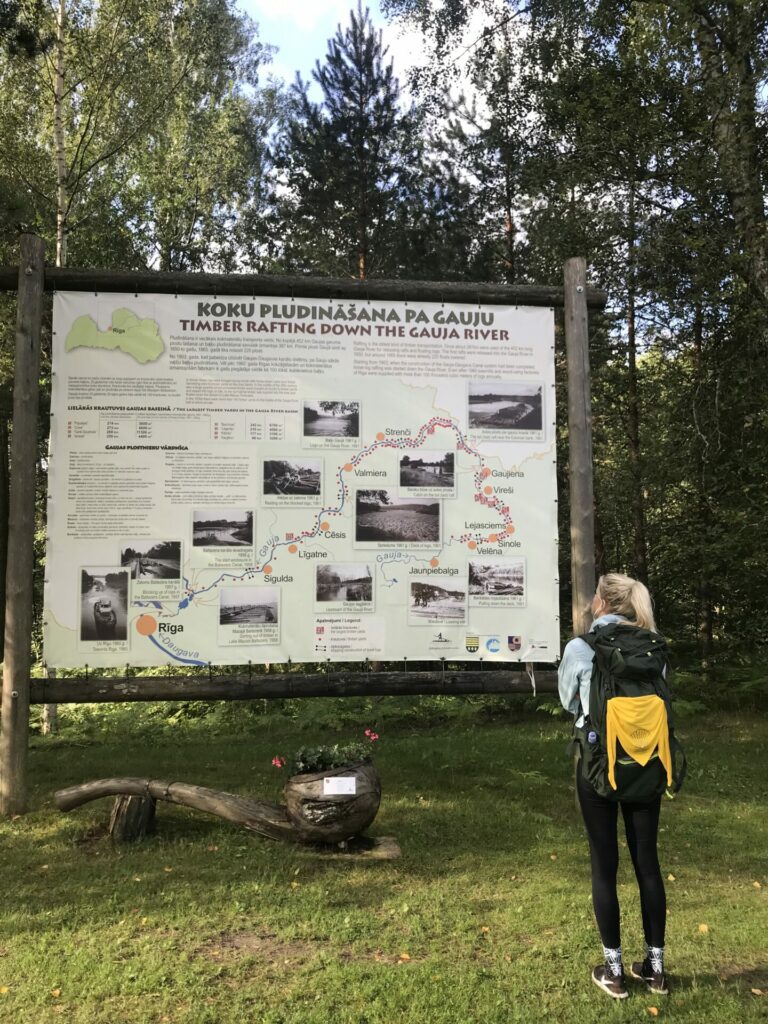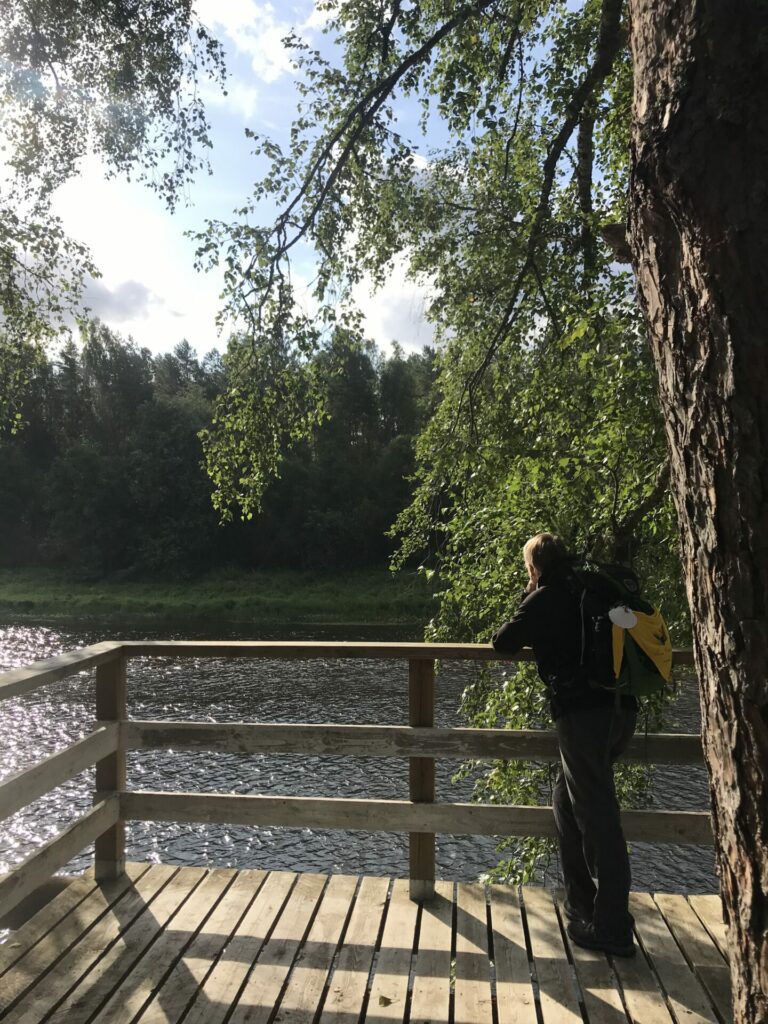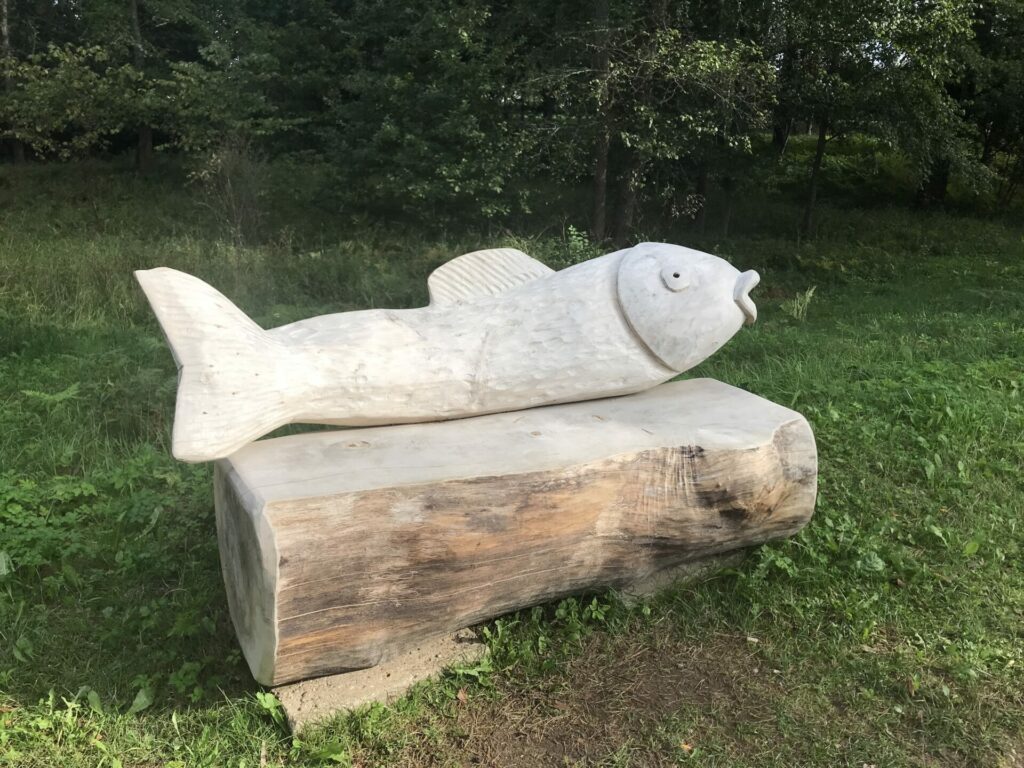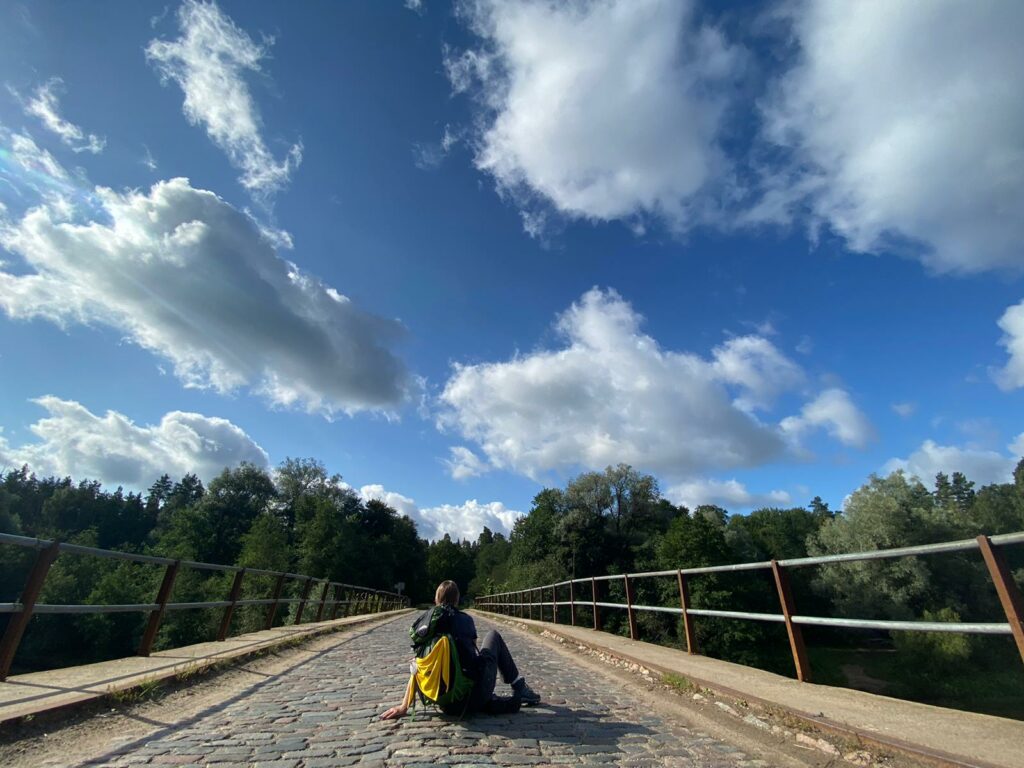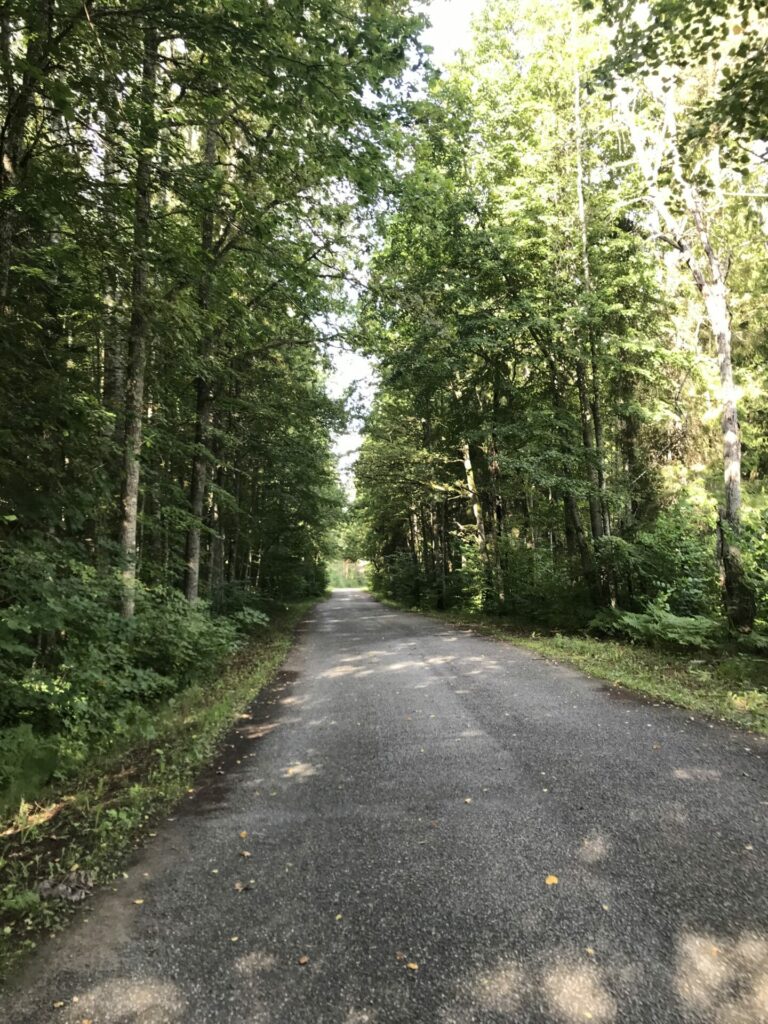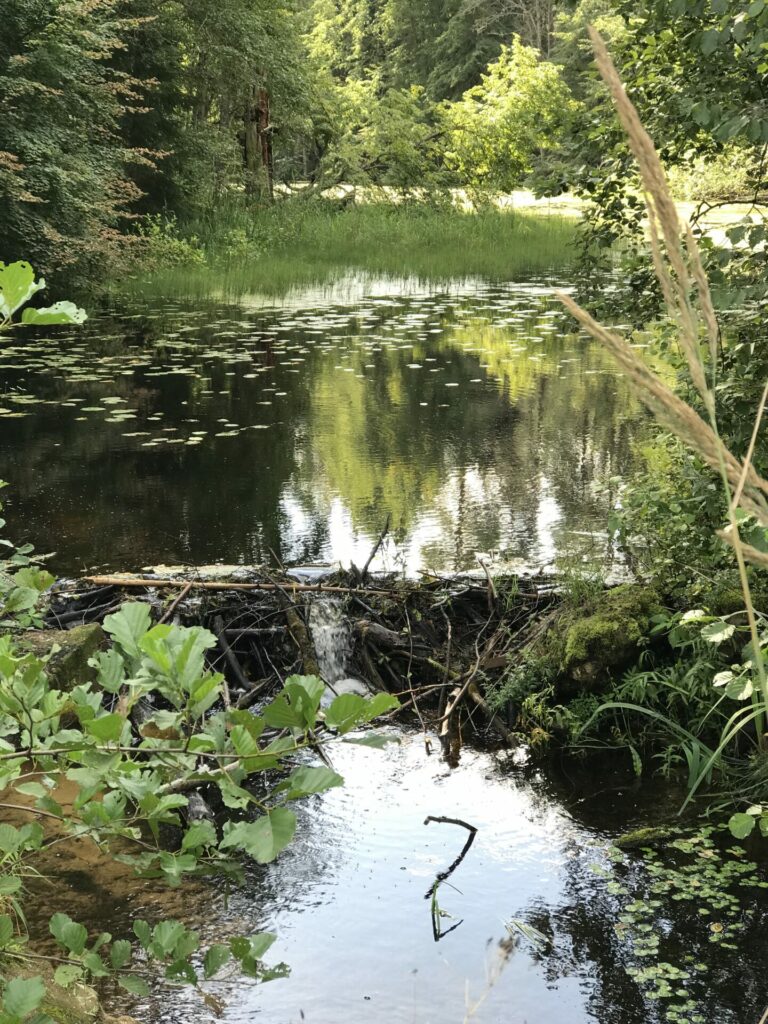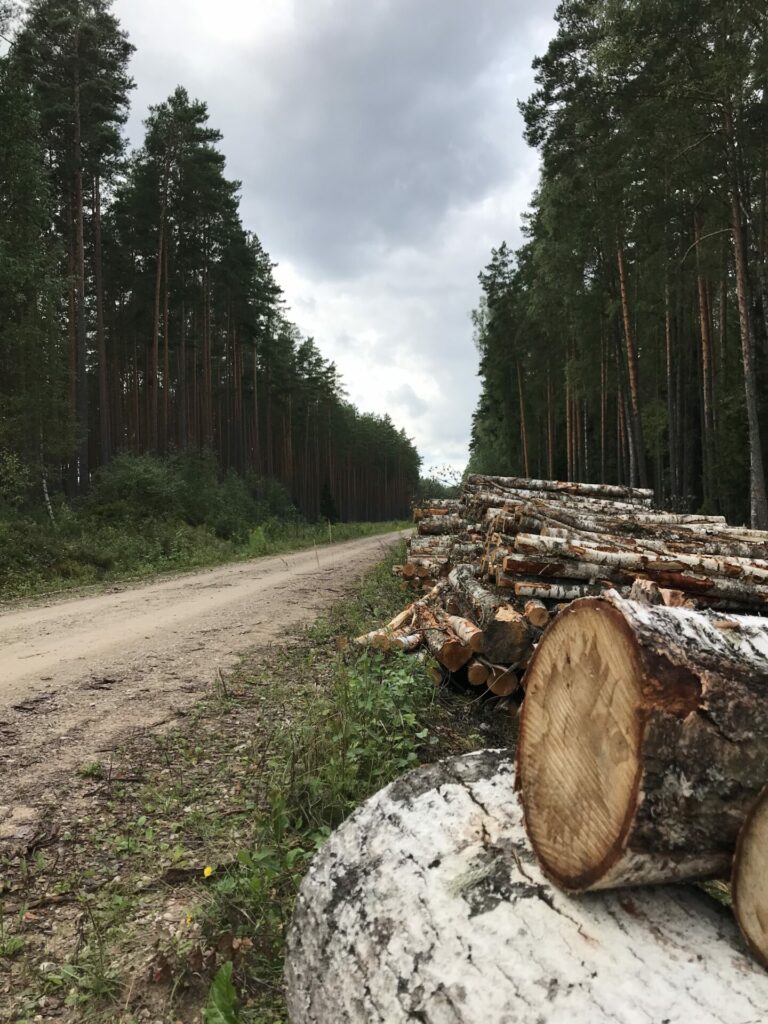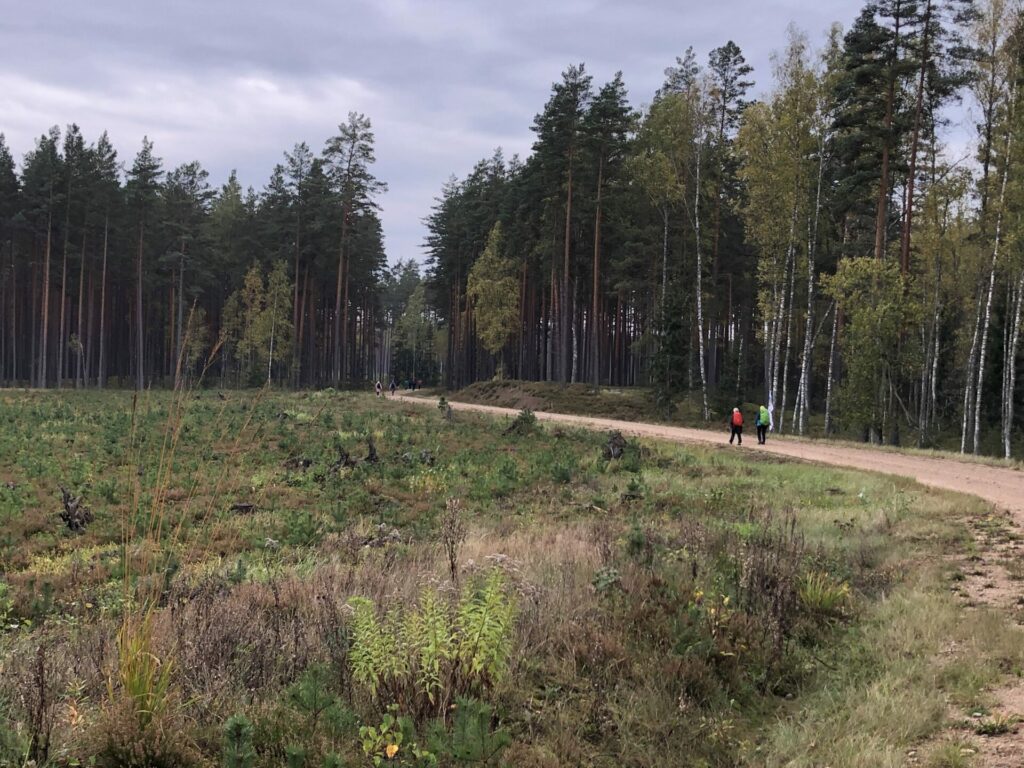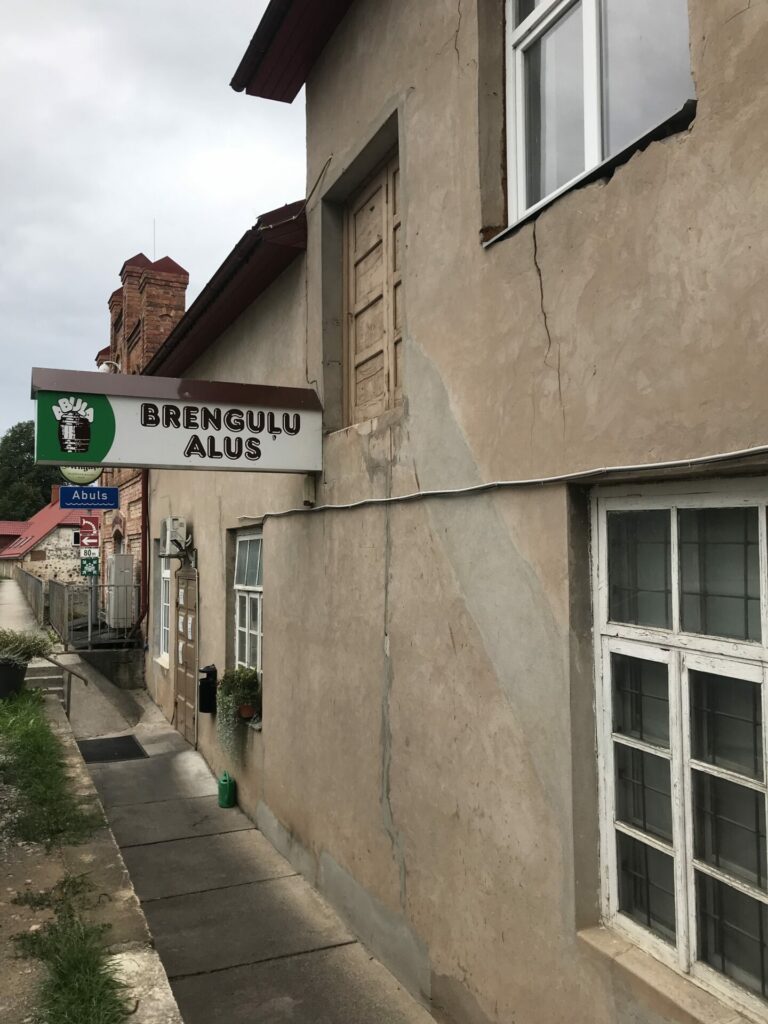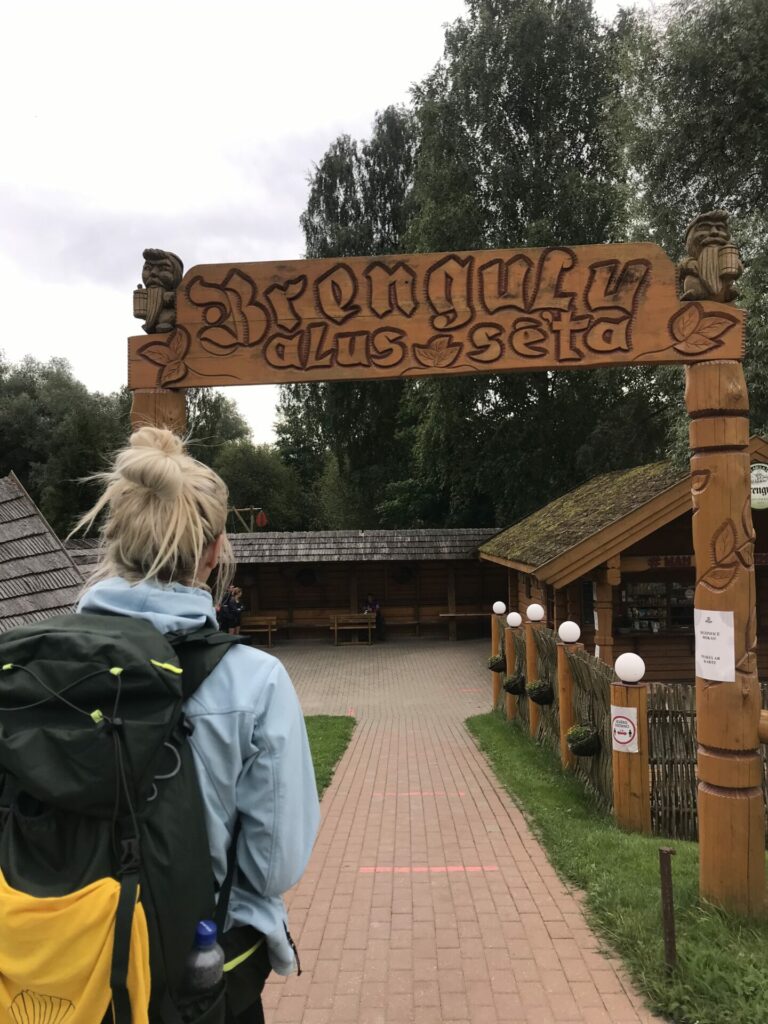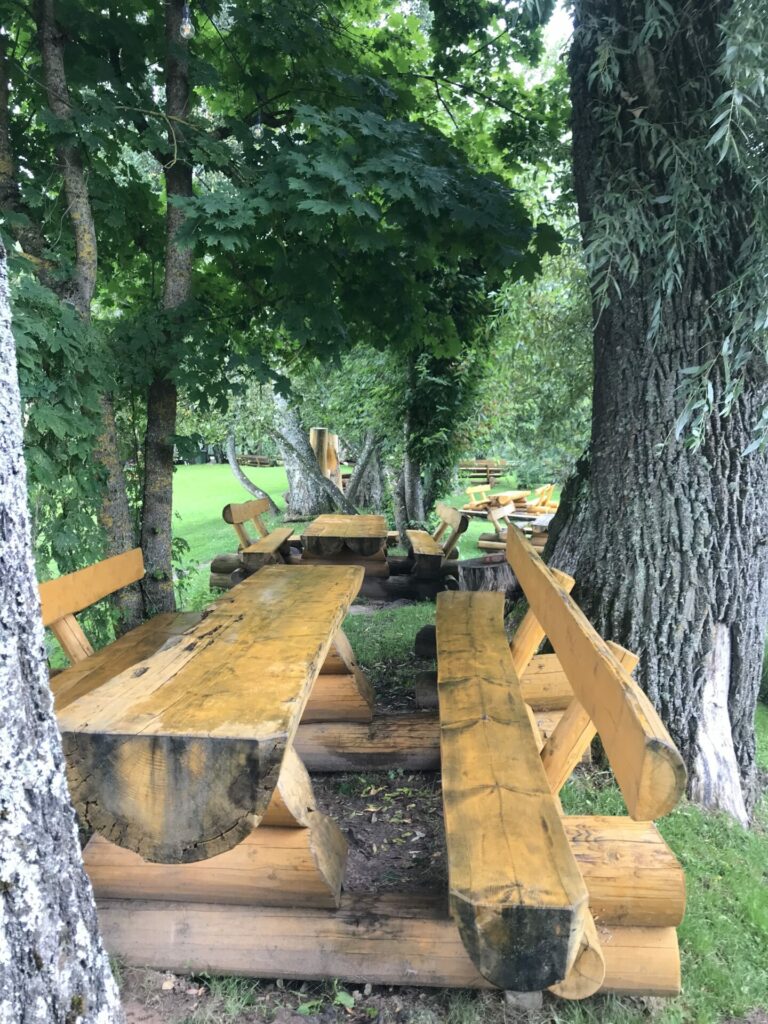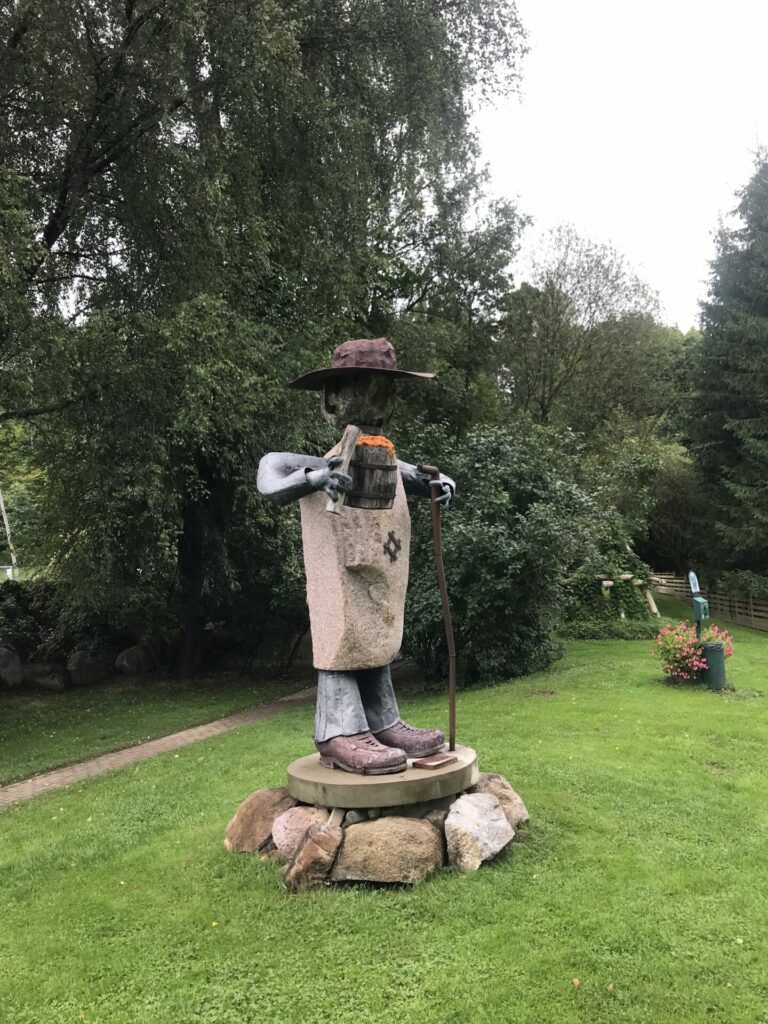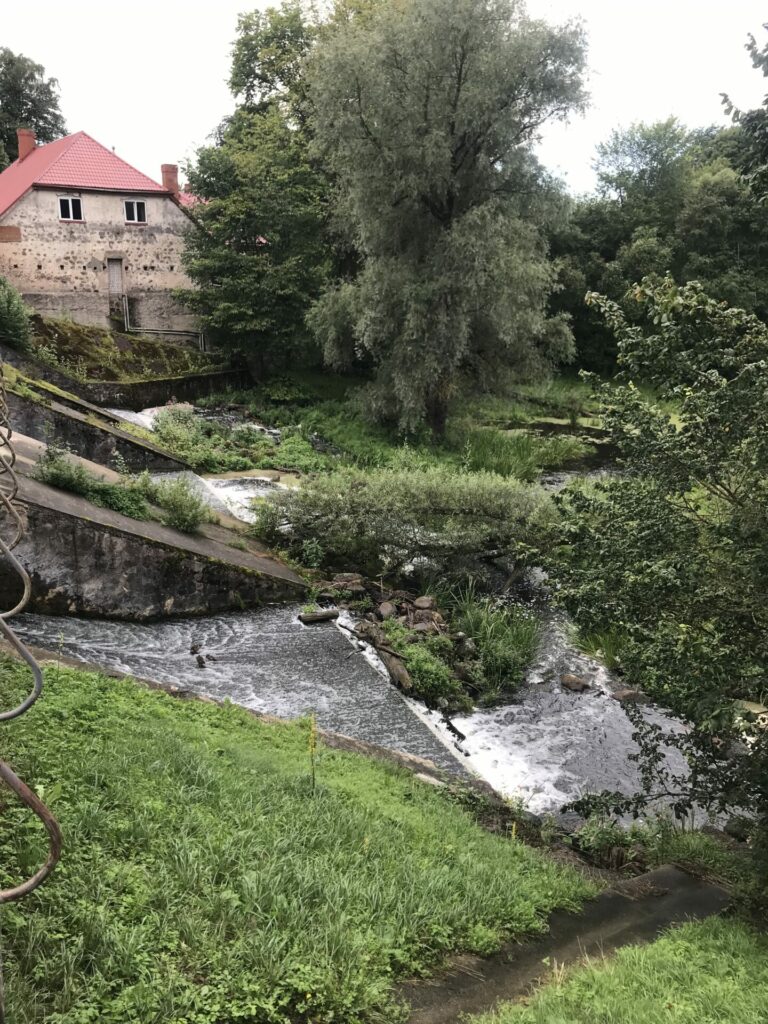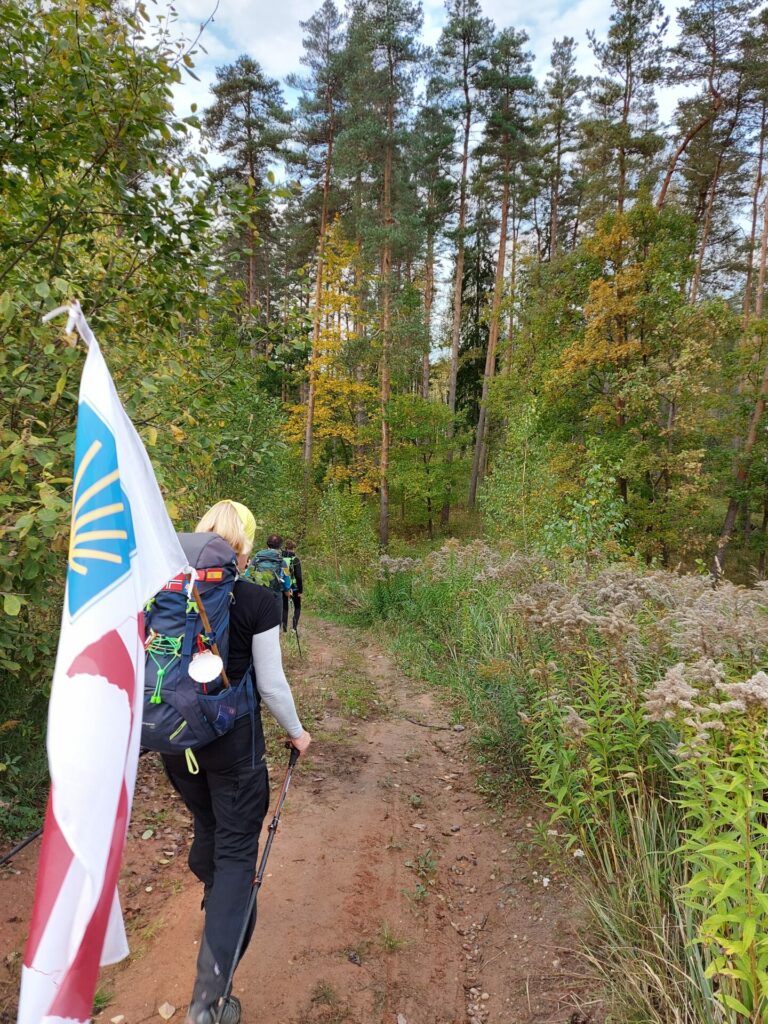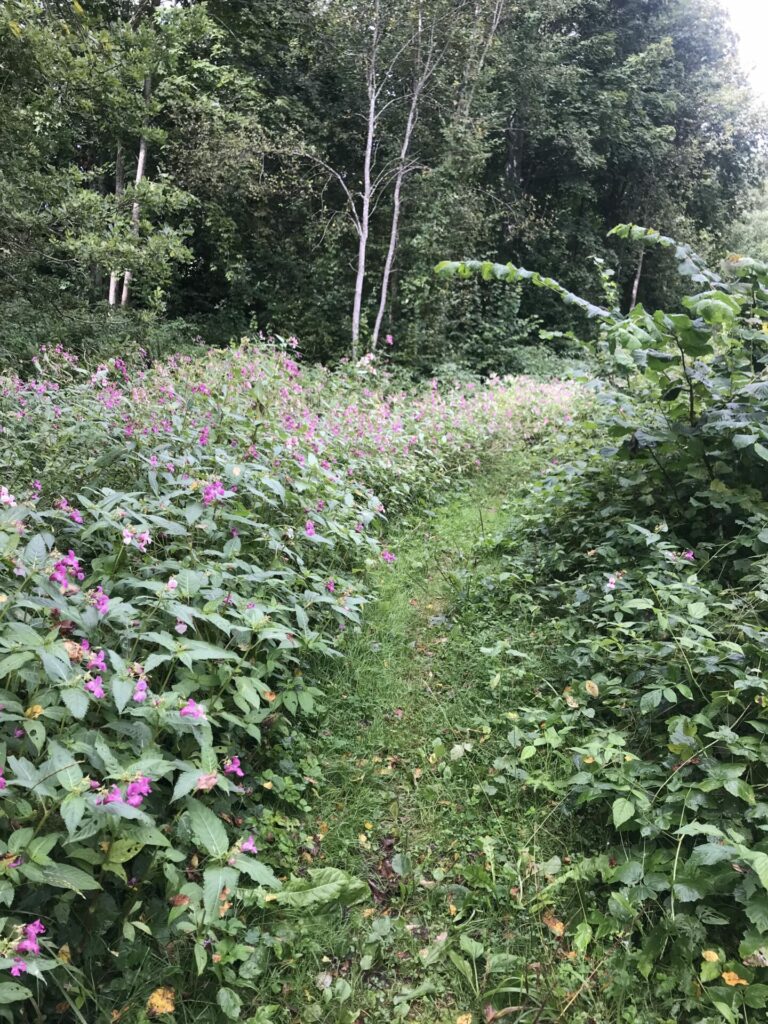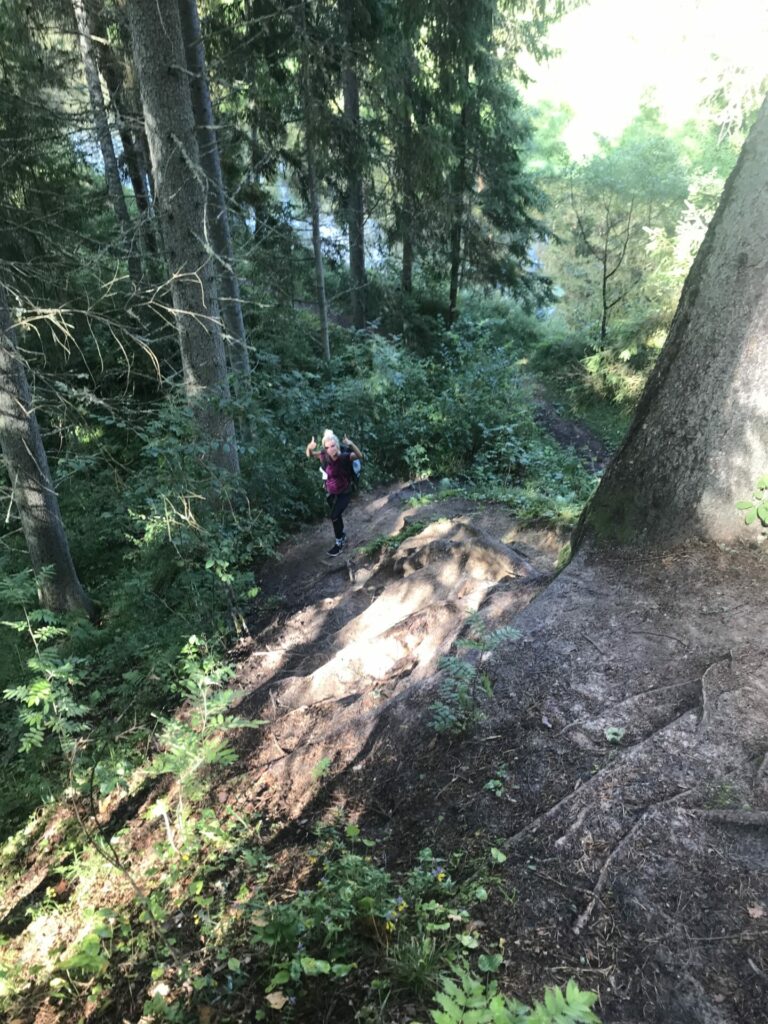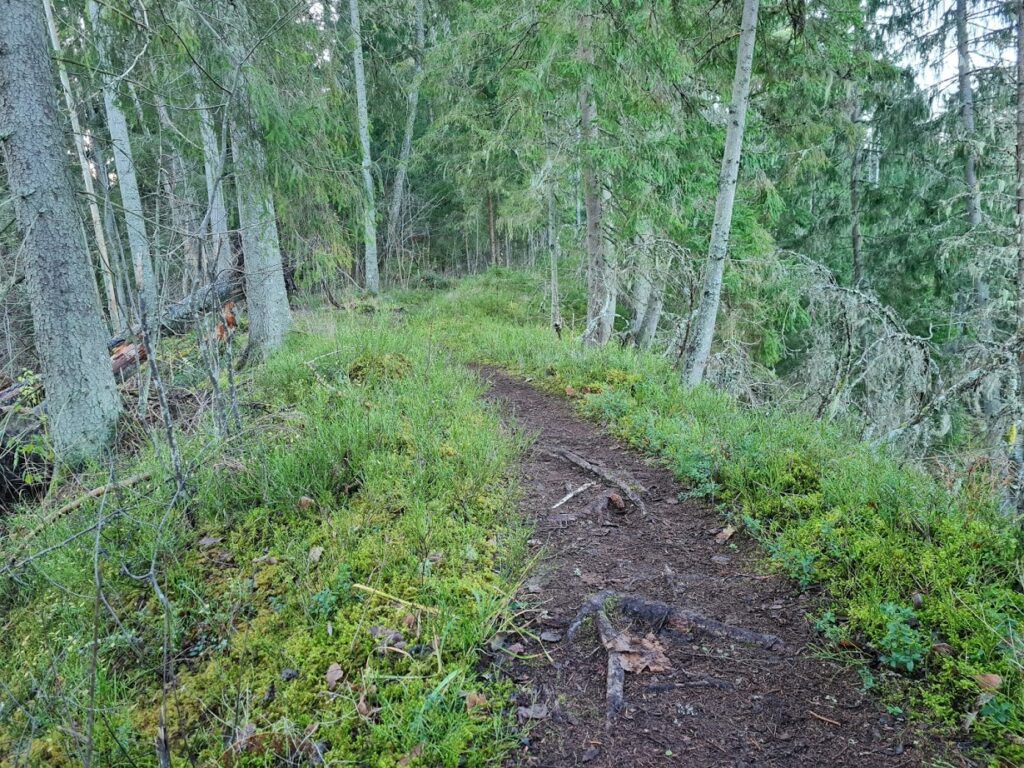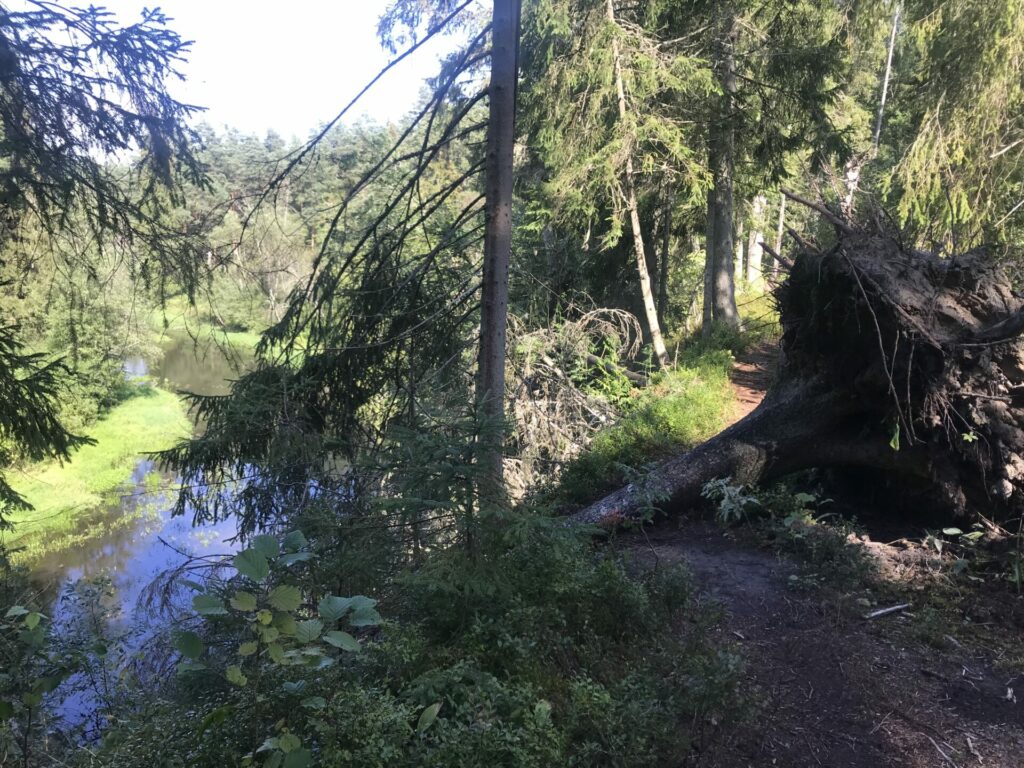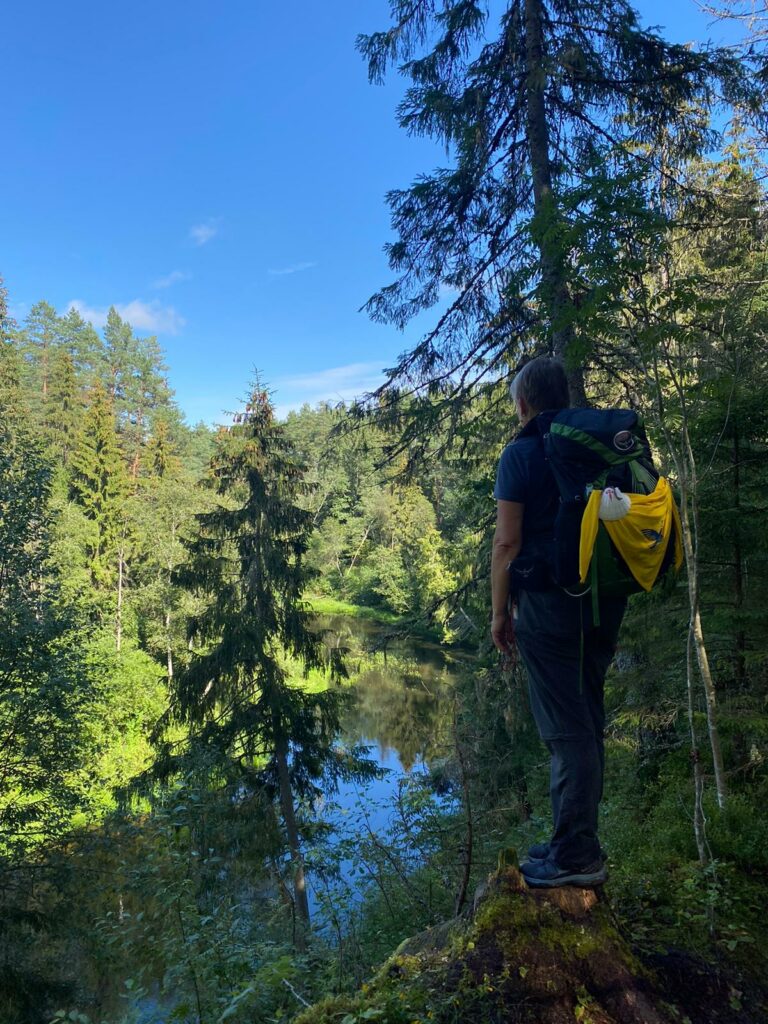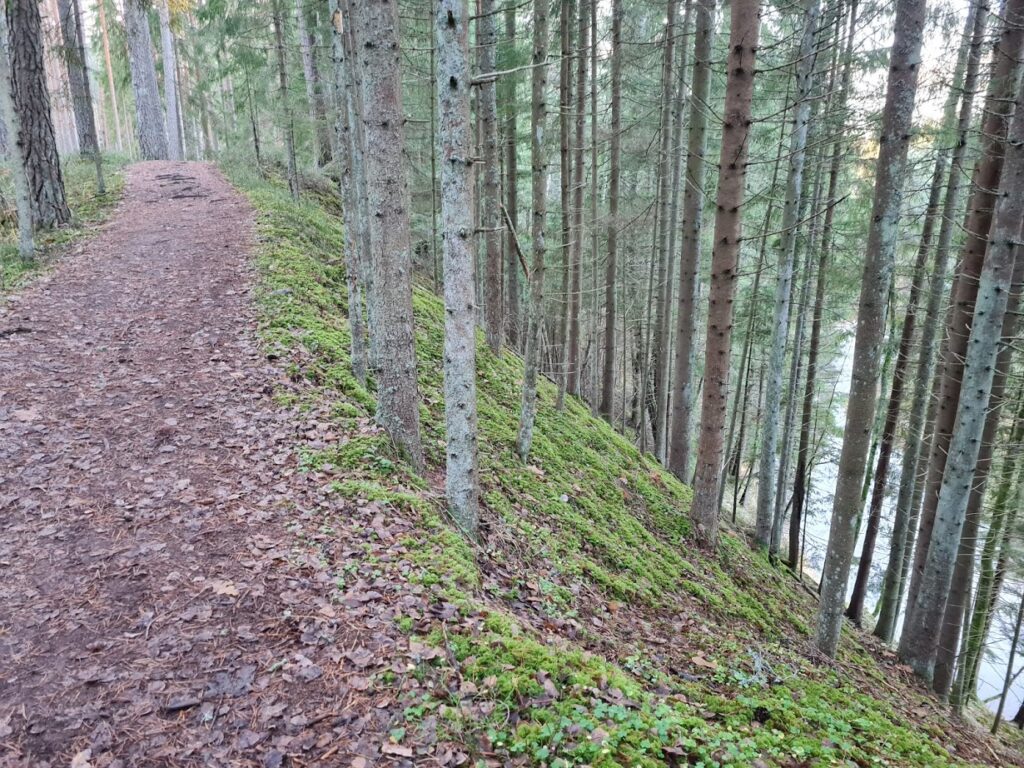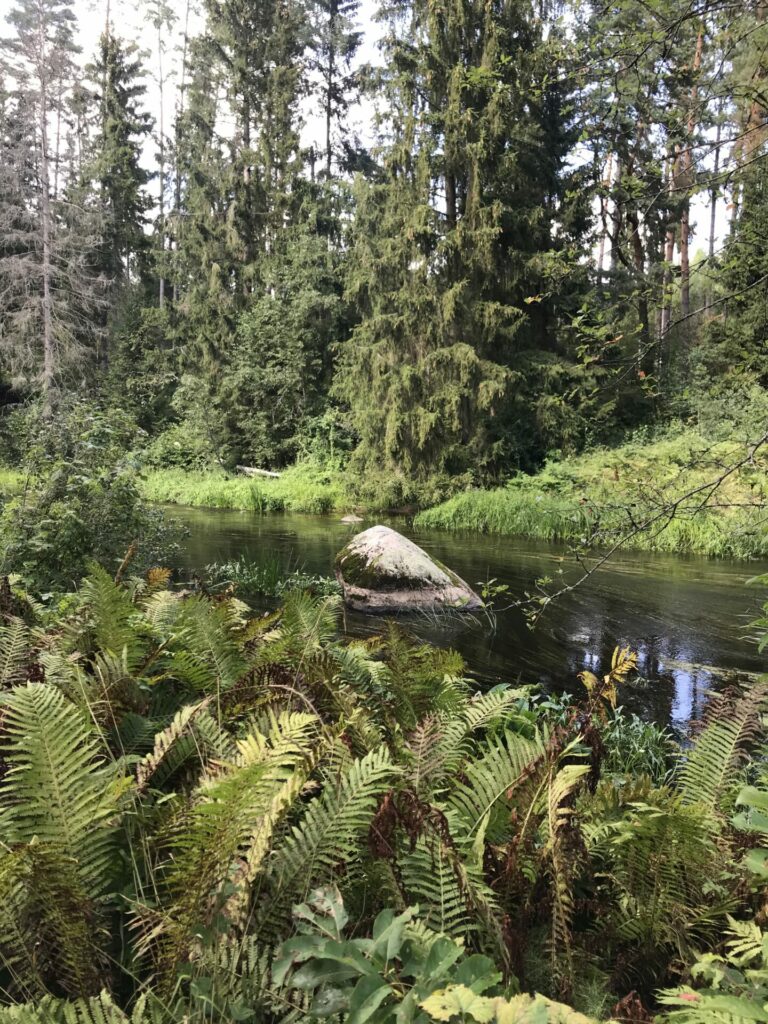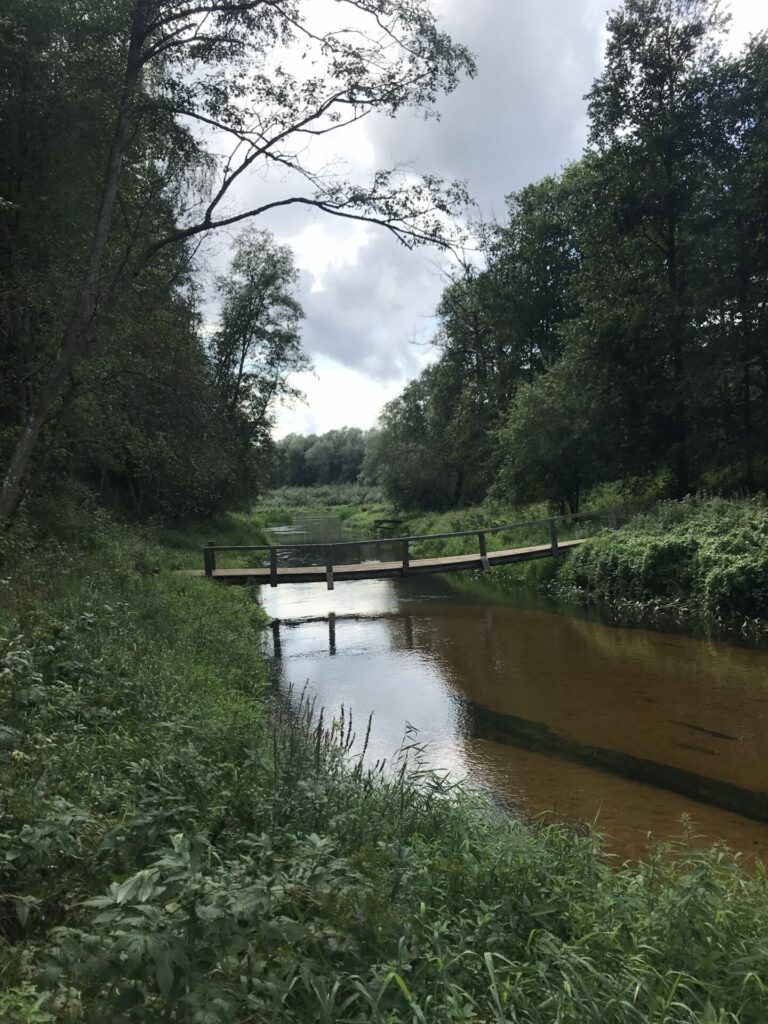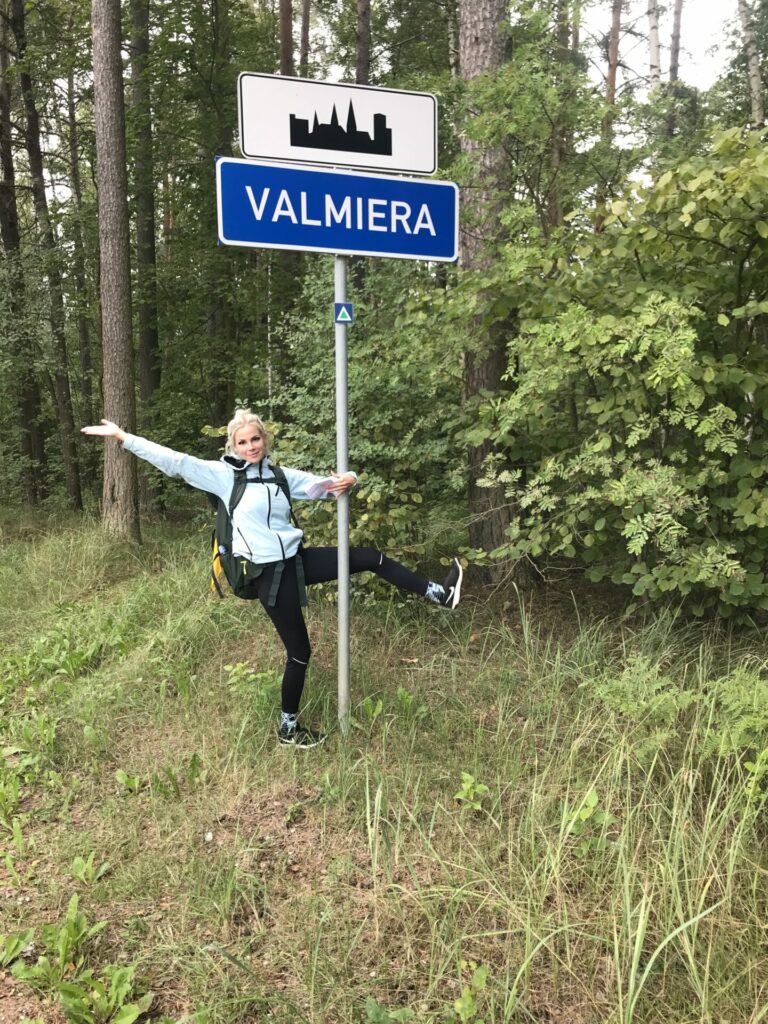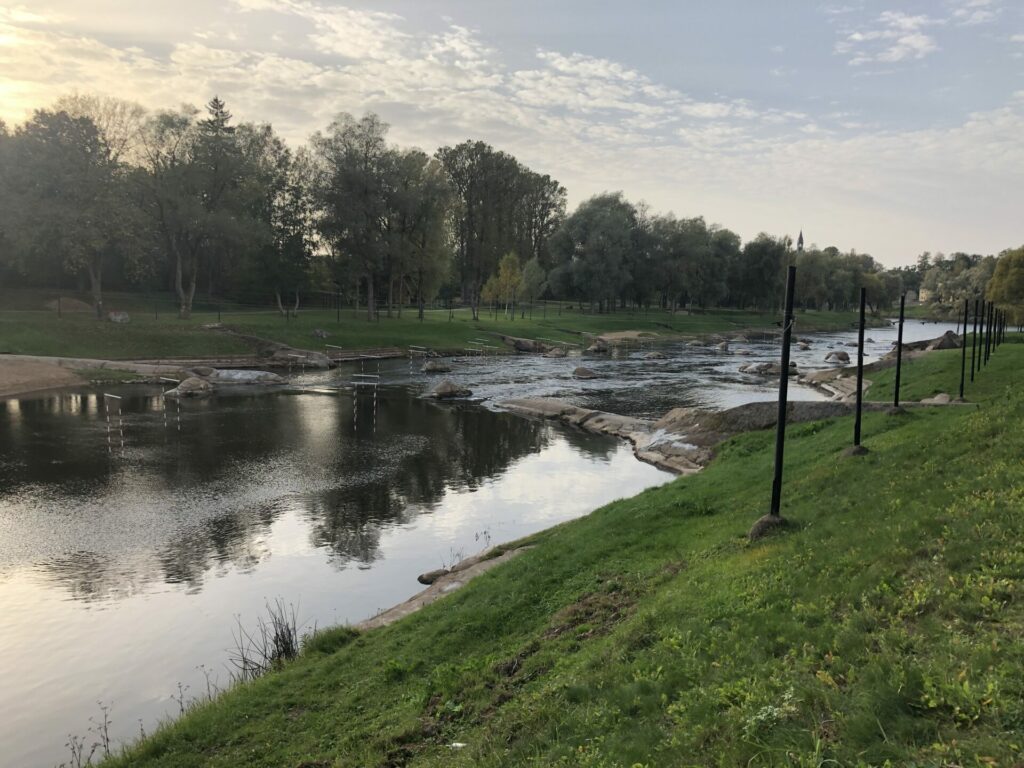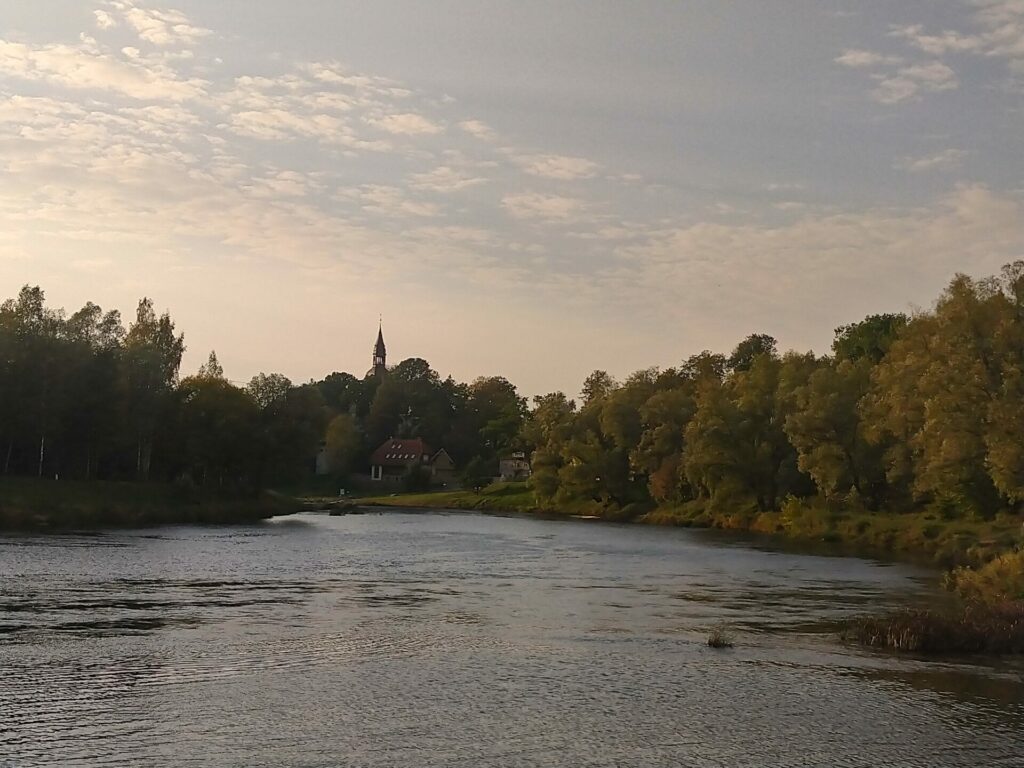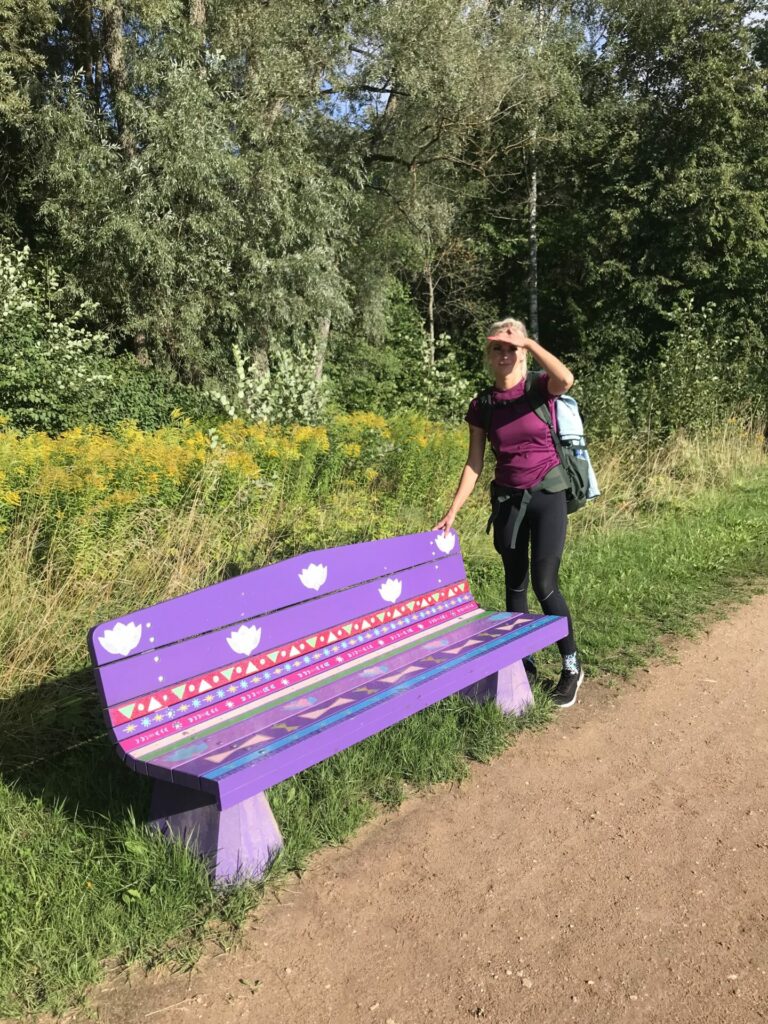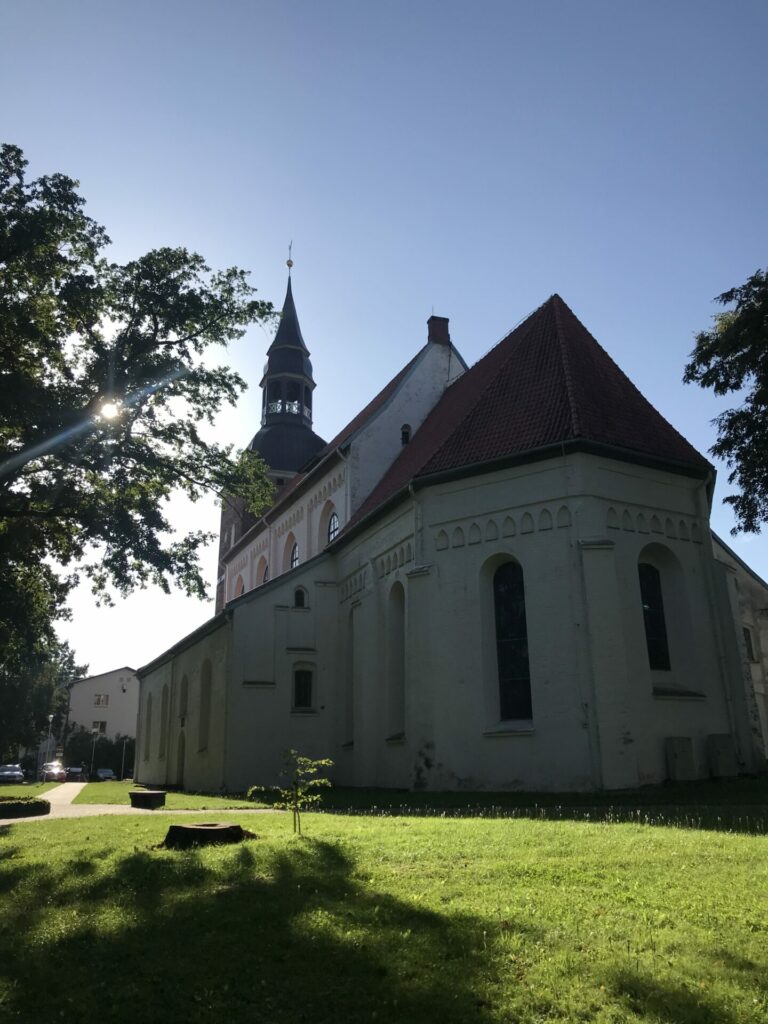Strenči – Valmiera

Strenči – 14 km Pūpoli – 4 km Brenguļi – 8 km Baiļi – 4 km Valmiera
Stage consultant – Sarmīte, WhatsApp or SMS, +371 29119121, e-mail: lacesarmite@gmail.com
In Strenči it is possible to visit a shop, a canteen, an ATM. There is a bus connection to larger and smaller cities.
Today’s stage leads through forests and small villages. The nearest point where to buy food will be in Brenguļi.
To the right of the church a road lead to the culture center. Behind it, on the right side, a paved path will take you down directly over the Strenčupīte river. Continue along Beverīnas Street, leaving the Market Square on the left. At the end of the street, turn right onto the path that leads to “Plostnieki” Park. Enjoying the view, we go to the left along the bank of the Gauja until the bridge. It is possible to use bathroom here.
Crossing the bridge with its special board /cobblestone pavement, we arrive in the Trikāta parish. Turn right onto an asphalt road that leads us through the forest. On the right side of the road, you can see the fishers favourite fishing spots on the Gauja river. After 1,6 km you will reach the settlement “Ūdriņas”. Pass the mechanical workshops on the right. At the crossroads turn right, past the concrete ridges, keeping left of the white bricks 2 floor building a narrow forest road lead further along the Gauja river.
After 1,5 km at the intersection with the main road, continue to the right, cross the railway. For the next 5.5 km a wide gravel road leads through clearings, a vast pine forest filled with berries, popular mushroom picker spots. We cross the Rušupīte river.
At the T-type crossroads turn to the left and continue on a straight and slightly boring forest road. After 2.5 km you will reach the settlement “PŪPOLI”. Beautifully manicured gardens delight travellers at every turn. Then, at the T-type crossroads, turn left and go past the bus stop on an asphalt road through the forest. After about 2.5 km at the crossroads go left.
At the railroad on the right side of the road you will see the house “DŪJAS”, where the owner offers water from the well and some apples. It is possible that you could negotiate other garden gifts as well.
Afterwards continue to the highway and turn right to “Brenguli”. Light snacks and locally made beer is available in the garden of the brewery.
Crossing the Abula River, immediately turn right onto the road (if you need to visit a shop, go straight to the top of the hill, and then come back to the intersection). The road ends after a while, but you should continue straight across the meadow in the direction of a small wooden barn. This trail is marked with white / blue markings, as well as the “Mežtaka” (Forest trail) signs. The road winds along the riverbank with several resting areas and benches along the way. This is also called the TRAIL OF LOVE. When we reach the rest and campfire place where Abuls flows into the Gauja go left over the bridge. Continue on this trail until the guest house Jaunarāji. The road leads to the left past the small cottages. At the intersection of forest roads keep straight until it joins a more important road. Turn to the right and continue straight over the bridge. After 1 km at the intersection keep to the left through the property “Kalniņi”. When you reach the Valmiera border, indicated by a road sign, right after the sign turn right onto the overgrown forest trail.
(If you plan to spend the night in BAIĻI, then go right and continue on the road)
The trail leads down the hill and over motor track and up the hill again. Keeping to the right we reach the point where trail reconnects with the “Mežtaka”. A forest road (trail) leads down the hill, straight across a wider sandy area, and up the hill again. Keeping to the right, we come to a point where our road joins “Mežtaka” again. We walk to the pedestrian bridge over Gauja. When crossing the bridge, you should immediately turn left along the path and continue walking straight to the Valmiera Music School. After the school, go up until you reach Valmiera Sv. Simon’s Church.


